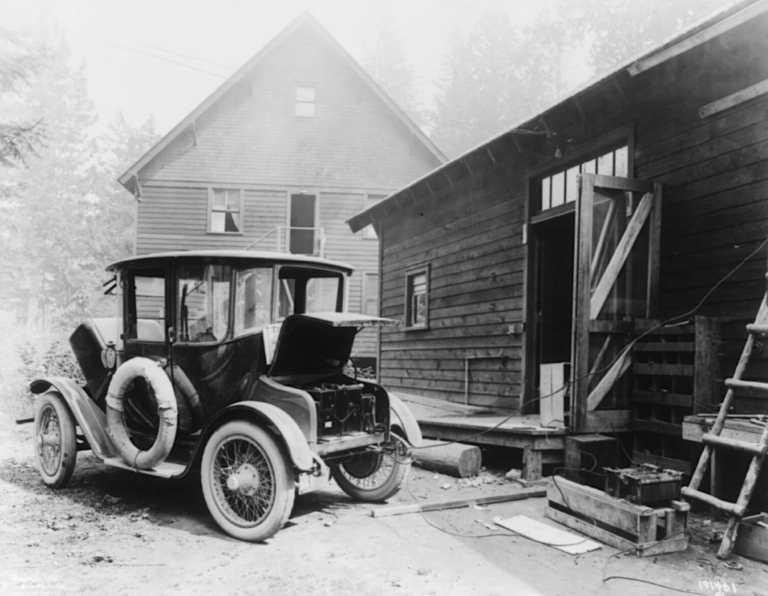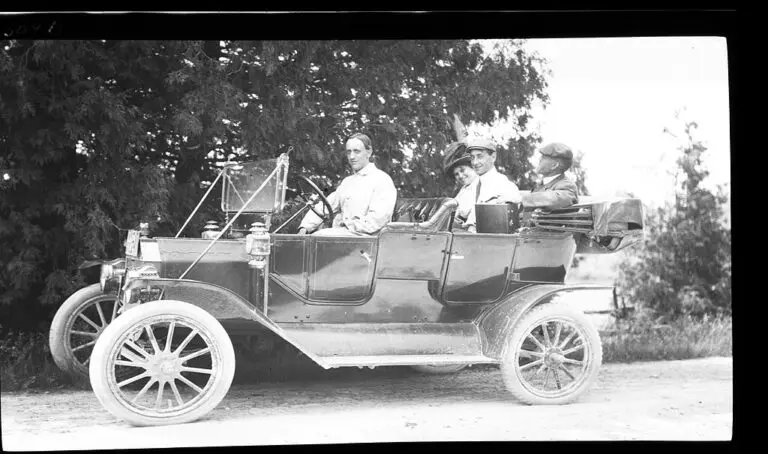The first electric car in the United States was introduced in 1832, 192 years ago
Despite electric vehicles reaching their peak of popularity in the last decade, their history dates back much further than one might think. The first recorded electric car appeared in the 1800s, facing similar issues to modern electric vehicles despite belonging to a different century.
History of the first electric vehicles
The first electric car in the United States was introduced in 1832, 192 years ago. However, it wasn’t until 1870 that electric cars began to be practical, with the development of the first rudimentary EV by Robert Anderson.
The invention of the electric car has multiple contenders for credit, with Hungarian priest Ányos Jedlik standing out as one of the first. In 1827-1828, Jedlik created a model vehicle powered by a primitive electric motor. Other contributors include Vermont blacksmith Thomas Davenport, who operated a small electric locomotive around 1835, and Dutchmen Sibrandis Stratingh and his assistant Christopher Becker.

Despite these advancements, early electric vehicles were small until Scottish inventor Robert Anderson developed the first full-size electric carriage around 1832, using non-rechargeable primary batteries. In 1889, in Iowa, William Morrison of Des Moines created a successful electric wagon capable of carrying up to nine passengers. In 1902, the first battery-operated horseless carriage appeared.
Throughout the 19th and 20th centuries, electric cars experienced a surge in popularity due to being quiet, easy to drive, and emission-free. By 1912, their popularity was such that they represented a third of all vehicles in circulation in the United States.

Old cars, modern problems
However, their decline began with the emergence of an affordable gas vehicle with electric start, known as the Model T. Additionally, as more gasoline stations were built, refueling gasoline vehicles became easier, while charging stations were not exactly popular.
Since the early days of electric vehicles, the main complaint has been their limited range and long charging times, a concern that persists today. After a brief initial interest in the 19th century, the resurgence of electric cars occurred in the 1970s with the popular Sebring-Vanguard CitiCar, offering a range of 100 km. However, interest waned again due to the same issues of range and charging.
The resurgence of electric vehicles in the 1990s with General Motors’ EV1 sparked a new wave of interest. Since then, the variety of electric car models and charging infrastructure has grown significantly. Despite these advancements, concerns about range and charging times persist among American consumers, reflecting a repetitive pattern in the history of electric vehicles.

$170 billion at stake: 1,500 companies demand tariff refunds
Companies have challenged the global tariffs imposed by President Donald Trump, asking federal courts to reactivate proceedings to begin the refund process. The companies that

In brief: enforcement measures target speeding, CDL training gaps and more
Major enforcement actions across the U.S., including speeding, CDL fraud, and chain violations Colorado launches Speed Enforcement Program The Colorado Department of Transportation (CDOT) has

Chinese Vehicles Raise Espionage and Remote Sabotage Concerns
Investigations into Chinese technology in connected vehicles warn of espionage risks, massive data transmission, and potential remote access vulnerabilities that concern U.S. transportation and security

Between the Court and the Fed: the market redefines its roadmap for 2026
Trade policy in limbo as markets price in 2026 rate cuts and Supreme Court strikes down Trump tariff plan. In the latest episode of the

New 10% U.S. import tariff takes effect amid legal and market uncertainty
The implementation of these new tariffs has generated global uncertainty among exporters, increasing confusion around U.S. trade policy. The United States has implemented a new

Military Trucks That Moved a Base in Syria
Convoys of advanced HEMTT and PLS military trucks carried armored vehicles, prefabricated base structures, mobile workshops and heavy equipment during the U.S. withdrawal from northeastern
